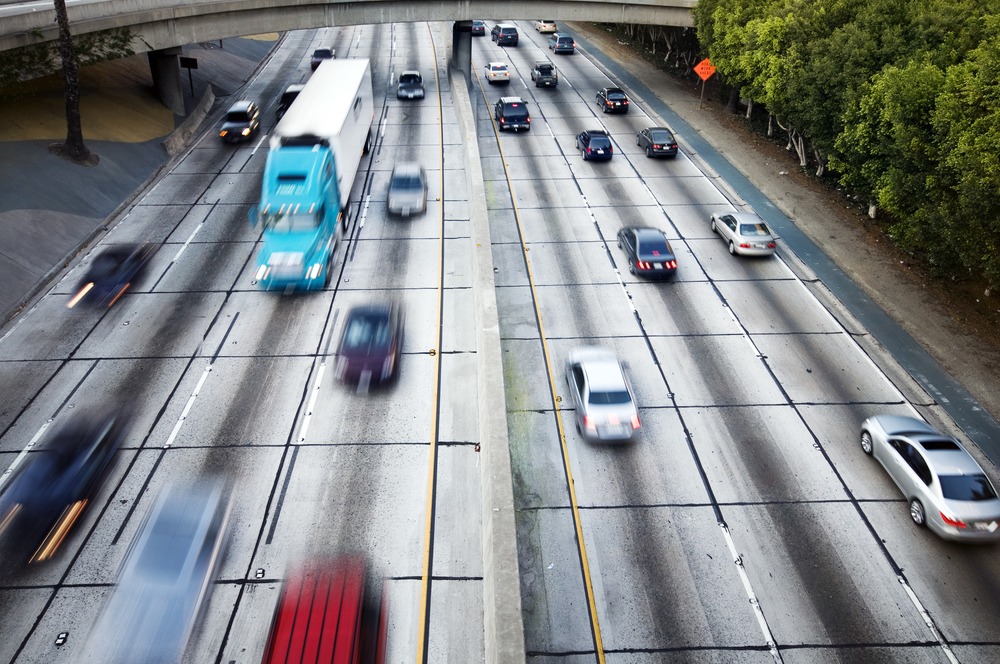
Experts in the transportation industry urged members of Congress on Wednesday to take action on funding surface transportation projects now and into the future by ensuring a long-term and stable revenue stream for the Highway Trust Fund.
Members of the House Transportation and Infrastructure’s Subcommittee on Highways and Transit heard one clear message during their hearing on long-term funding of highway and transit systems: Congress needs to take steps to federally fund infrastructure before the Highway Trust Fund runs out and the Fixing America’s Surface Transportation Act, or FAST Act, expires in 2020. The hearing followed Transportation Secretary Elaine Chao’s testimony on the Trump administration’s infrastructure proposal before the House committee on Tuesday.
The Highway Trust Fund, the primary source of federal revenue for highway and transit projects, had a cash balance of $51.6 billion on Jan. 1, and the Congressional Budget Office estimates it will run out of money to meet its obligations beyond fiscal year 2020.
Motor fuel excise taxes and other truck taxes generate the majority of the revenue for the Highway Trust Fund. But the fact that motor fuel taxes have not risen in 25 years, while fuel economy standards have increased, has contributed to financial pressures on the fund.
“Beginning as early as the spring of 2020, states may have to halt construction of surface transportation projects because, once again, the Highway Trust Fund will not be able to meet its obligations,” Subcommittee Chairman Sam Graves (R-MO) in his opening remarks.
Transportation and Infrastructure Committee Chairman Bill Shuster (R-PA), said that Congress must consider using a gas tax to fund the trust fund.
“Thirty-one states have raised the gas tax, and nobody has paid the political price,” he said. “But we will pay the political price if the trust fund runs out. We’re already paying for it with congestion and failing bridges.”
Witnesses appearing before the committee made several recommendations, including a per gallon tax on gas prior to it getting to the pump, a vehicle miles traveled (VMT) fee and public private partnerships (P3s).
Chris Spear, president and CEO of the American Trucking Associations (ATA), urged the committee to consider the ATA’s Build America proposal that would levy a 20-cent per gallon fee on fuel phased in over a 20-year period at the wholesale terminal rack, or ports, terminals or pipelines. Spear said his organization’s plan would ensure the tax is included in the cost of fuel.
“The trucking industry loses more than $63.4 billion in lost productivity every year because of our roads,” he said. “That $63 billion is like a 9 percent tax on our industry…. The Build America Fund would ensure 99 cents of every dollar would pay for projects instead of going to bureaucrats or foreign banks. It doesn’t add to the deficit, and it puts real money, $340 billion in new revenue, on the table.”
Discussions arose around trying to determine how to make whatever funding solution fair to everyone. Gas taxes would not impact electric cars, or alternative fuel cars, but those alternatively fueled cars would also be using the roads.
Rep. Rodney Davis (R-IL) said discussions on how to address those alternative fuel sources need to take place now, as it will become an issue in the future.
“Solely raising the gas tax is not going to fix the issue,” Davis said. “We’ve got to look at this funding solution like a 401k, we’ve got to diversify. If we don’t so something now, we’re going to continue to decimate the highway trust fund and require transfers from the general fund.”
Michael Lewis, executive director with the Colorado Department of Transportation, testifying on behalf of the Western Road Use Charge Consortium (RUC West), said RUC West’s pilot programs in VMT fees was still in too early of a stage to be able to give insight on whether or not that program would be an equitable way of funding vehicles using alternative fuels.
John Schroer, commissioner of the Tennessee Department of Transportation, and president of the American Association of State Highway and Transportation Officials, said however the funding means were implemented, federal funding is imperative in order to ensure parts of major interstate systems that run through certain parts of states are adequately funded.
Citing I-69, a highway that runs from Detroit to Texas, Schroer said his department has to spend money to maintain and increase the capacity of roads, and that building roads is done according to a formula that ranks roads based on safety, congestion and economic development. One 70-mile stretch of I-69 would run through farmland in rural Tennessee, and would not meet the criterion for the state spending the $1.5 billion it would take to build that road.
“We have over 1,000 miles of centerline interstate running through our state,” Schroer said. “That 70 to 75 mile stretch of road has to compete with every other road that runs through Tennessee… Quite frankly, I-69 doesn’t reach any of those (formula) parameters and we’ll have a hard time funding it without federal money.”
The key message from the panel, however, was that Congress needs to act, and that the president needs to put his full weight behind their decision.
“You guys know how to write a highway bill,” Spear said. “It’s all about the money and putting real money on the table. But it’s imperative that the president put the full power of his office behind this to lead the country in this. To get to the number we’re talking about, you’re going to have to really get behind this and support it.”